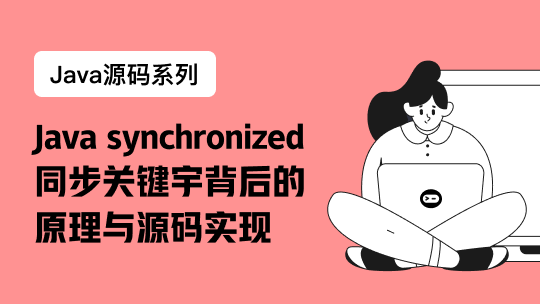最近在读《深入理解java虚拟机》第二版,在JDK1.8环境下遇到一个关于MethodHandle使用上的问题,在这里记录下。https://github.com/floor07/essential-jvm (github jvm的读书笔记)
本文目录如下:
- 引子
- java.lang.invoke简介
- 关于引子书上的解法
- JDK1.8为什么跟预想的不一致
引子
在《深入理解java虚拟机》第二版第8章,上提出了一个问题,简要描述如下:
在Son类中,调用GrandFather的thinking方法,打印 I 'm grandFather。
Son类,GrandFather类定义如下:
public class MethodHandleTest {
class GrandFather{
void thinking(){
System.out.println("I 'm grandFather!");
}
}
class Father extends GrandFather{
void thinking(){
System.out.println("I 'm father!");
}
}
class Son extends Father{
void thinking(){
//实现祖父类的thinking(),打印 I 'm grandFather
}
}
}
针对这个问题,书中引出了java.lang.invoke包,下面简要介绍下
简介java.lang.invoke包
JDK1.7之后,加入的java.lang.invoke包,该包提供了一种新的确定动态目标方法的机制,Method Handle.
Method Handle使得Java拥有了类似函数指针或委托的方法别名的工具。
简单使用方式
- 创建目标方法的MethodType对象,MethodType.methodType方法的第一个参数是返回值 ,之后是按目标方法接收的参数的顺序填写参数类型。
- MethodHandles.lookup()对应的findXXX方法,获取目标方法的MethodHandle对象。
- 调用MethodHandle对象的invokeExact方法。该方法参数是目标方法的参数。
举例说明如下:
例如 我们尝试调用:System.out.println的方法,该方法在JDK中的定义如下:
public void println(String x){
...
}
获取System.out.println的MethodType对象,如下
/**
* MethodType代表方法的类型,包含方法的返回值(第一个参数),之后是按顺序的方法接收的参数
* */
MethodType mt= MethodType.methodType(void.class,String.class);
获取System.out.println的MethodHandle的(这里边有一个findVirtual方法,是用于执行虚方法的。)方式如下:
/**
* lookup方法来自于MethodHandles.Lookup
* 用于在指定类(第一个参数),指定方法名称(第二个参数),指定方法类型(第三参数)查找
* 符合访问权限的方法句柄
* **/
/**
* 因为这里调用的是一个虚方法,
* 按照java语言的规范,第一个参数是隐式的代表该该方法的接收者,就是this,这里由bindTo方法进行处理。
* **/
MethodHandles.lookup().findVirtual(receiver.getClass(),"println",mt).bindTo(receiver);
MethodHandles.Lookup的findXXX方法说明
MethodHandle方法
字节码
描述
findStatic
invokestatic
调用静态方法
findSpecial
invokespecial
调用实例构造方法,私有方法,父类方法。
findVirtual
invokevirtual
调用所有的虚方法
findVirtual
invokeinterface
调用接口方法,会在运行时再确定一个实现此接口的对象。
看了上边的简要说明,很自然的想法就是MethodType先描述下thinking方法,
之后使用MethodHandles.lookup()的findSpecial方法,在GrandFather上查找thinking方法进行执行。
书上的解法也类似,下面咱们就看看书上的解法。
关于引子书上的解法
public class MethodHandleTest {
class GrandFather{
void thinking(){
System.out.println("I 'm grandFather!");
}
}
class Father extends GrandFather{
void thinking(){
System.out.println("I 'm father!");
}
}
class Son extends Father{
void thinking() {
//实现祖父类的thinking(),打印 I 'm grandFather
MethodType mt=MethodType.methodType(void.class);
try {
MethodHandle md=MethodHandles.lookup().findSpecial(GrandFather.class, "thinking", mt,this.getClass());
md.invoke(this);
} catch (NoSuchMethodException e) {
e.printStackTrace();
} catch (IllegalAccessException e) {
e.printStackTrace();
} catch (Throwable e) {
e.printStackTrace();
}
}
}
public static void main(String[] args) {
MethodHandleTest.Son son=new MethodHandleTest().new Son();
son.thinking();
}
}
上述代码在JDK1.7.0_09上运行正常,运行结果是I'm grandFather

但是 **该解法在JDK1.8下不行**,运行结果是I’m father

JDK1.8为什么跟预想的不一致?
为什么1.8跟预想的不一致?带着这个疑问我查阅了JDK8规范说明
本人摘录其中的一段文字说明如下:
A lookup class which needs to create method handles will call MethodHandles.lookup to create a factory for itself.
When the Lookup factory object is created, the identity of the lookup class is determined,
and securely stored in the Lookup object.
The lookup class (or its delegates) may then use factory methods on the Lookup object to create method handles
for access-checked members.
This includes all methods, constructors, and fields which are allowed to the lookup class, even private ones.
简要翻译如下:
需要创建method handles的查找类将调用MethodHandles.lookup为它自己创建一个工厂。
当该工厂对象被查找类创建后,查找类的标识,安全信息将存储在其中。
查找类(或它的委托)将使用工厂方法在被查找对象上依据查找类的访问限制,创建method handles。
可创建的方法包括:查找类所有允许访问的所有方法、构造函数和字段,甚至是私有方法。
简单说就是 :JDK1.8下MethodHandles.lookup是调用者敏感的,不同调用者访问权限不同,其结果也不同。
在本例中,在Son类中调用MethodHandles.lookup,受到Son限制,仅仅能访问到Father类的thinking。所以结果是:'I'm father'
在这里,各位看官,心中一定会有一个疑问:这个包与java.lang.reflecct包区别是什么?
与java.lang.reflecct包的区别
- MethodHandle服务于所有java虚拟机上的语言,Reflection仅仅服务于java语言。
- Reflection在模拟Java代码层次的调用,而MethodHandle在模拟字节码层次的方法调用。
- Reflection是重量级,而MethodHandle是轻量级。
- MethodHandle可以进行内联优化,Reflection完全没有。
总结
Java一致在更新,也越来越严禁,看书时,一定要注意对比最新的官方文档。
JDK1.8环境下MethodHandles.lookup方法是调用者敏感的。












